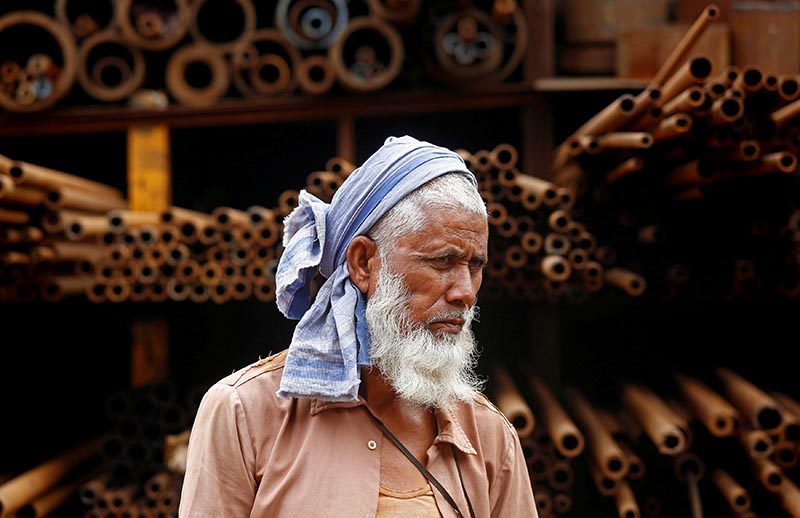India, top buyer of US almonds, hits back with higher duties
- India to raise tariffs on range of farm, steel products
- Tariff increases set to take effect from Aug. 4
- New Delhi incensed by US refusal to grant it exemption
NEW DELHI: India, the world's biggest buyer of US almonds, raised import duties on the commodity by 20 percent, a government order said, joining the European Union and China in retaliating against President Donald Trump's tariff hikes on steel and aluminium.
New Delhi, incensed by Washington's refusal to exempt it from the new tariffs, also imposed a 120 percent duty on the import of walnuts in the strongest action yet against the United States.
The move to increase tariffs from August 4 will also cover a slew of other farm, steel and iron products.
It came a day after the European Union said it would begin charging 25 percent import duties on a range of US products from Friday, in response to the new US tariffs.
"We know that discussions are still under way and we would hope that will result in a mutually beneficial decision not to move forward with some of these increases," Julie Adams, vice president, global technical and regulatory affairs at the Almond Board of California, told Reuters.
"India is an important market for almond exports... so anything that disrupts that market is obviously a concern."
India purchased over half of all US almond shipments in 2017. A kilogram of shelled almonds will attract duty of as much as 120 rupees ($1.76) instead of the current 100 rupees, India's Commerce Ministry said.
Majority of US almonds are shipped to India during autumn, a season of festivals in the country. With future contracts and commitments already in place, Adams said, it would be difficult to ship in advance of August 4.
Last month, New Delhi sought an exemption from the new US tariffs, saying its steel and aluminium exports were small in relation to other suppliers. But its request was ignored, prompting India to launch a complaint against the United States at the World Trade Organization.
"India's tariff retaliation is within the discipline of trade tariffs of the World Trade Organization," said Steel Secretary Aruna Sharma.
Trade differences between India and the United States have been rising since President Trump took office. Bilateral trade rose to $115 billion in 2016, but the Trump administration wants to reduce its $31 billion deficit with India, and is pressing New Delhi to ease trade barriers.
Earlier this year, Trump called out India for its duties on Harley-Davidson motorbikes and Prime Minister Narendra Modi agreed to cut the import duty to 50 percent from 75 percent for the high-end bikes.
But that has not satisfied Trump, who pointed to zero duties for Indian bikes sold in the United States and said he would push for a "reciprocal tax" against countries, including US allies, that levy tariffs on American products.
In the tariff rates issued late on Wednesday, the commerce ministry named some varieties of almonds, apples, chickpeas, lentils, walnuts and artemia that would carry higher import taxes. Most of these are purchased from the United States.
Walnuts have gone from 100 percent duty to 120 percent, the government note said.
India also raised duties on some grades of iron and steel products. In May it had given a list of products to the WTO that it said could incur higher tariffs.
An official from the steel ministry said at the time that the new tariffs were intended to show displeasure at the US action.
"It is an appropriate signal. I am hopeful that all of this (trade war) will die down. In my view this is not in the interest of the global economy," said Rajiv Kumar, vice chairman of the Indian government's policy think-tank Niti Aayog.
Rising trade tensions between the United States and some major economies have threatened to derail global growth.
Officials from India and the United States are expected to hold talks on June 26-27 to discuss trade issues, local daily Times of India reported on Thursday, citing Press Trust of India.
The US Commerce Department on Wednesday announced a preliminary finding that imports of large-diameter welded pipe from China, India, South Korea and Turkey were subsidised by those countries, and said it was imposing preliminary duties that could top 500 percent.
In a separate trade dispute, Trump threatened on Monday to hit $200 billion of Chinese imports with 10 percent tariffs if Beijing retaliates against his previous announcement to target $50 billion in imports. The United States has accused China of stealing US intellectual property, a charge Beijing denies.






